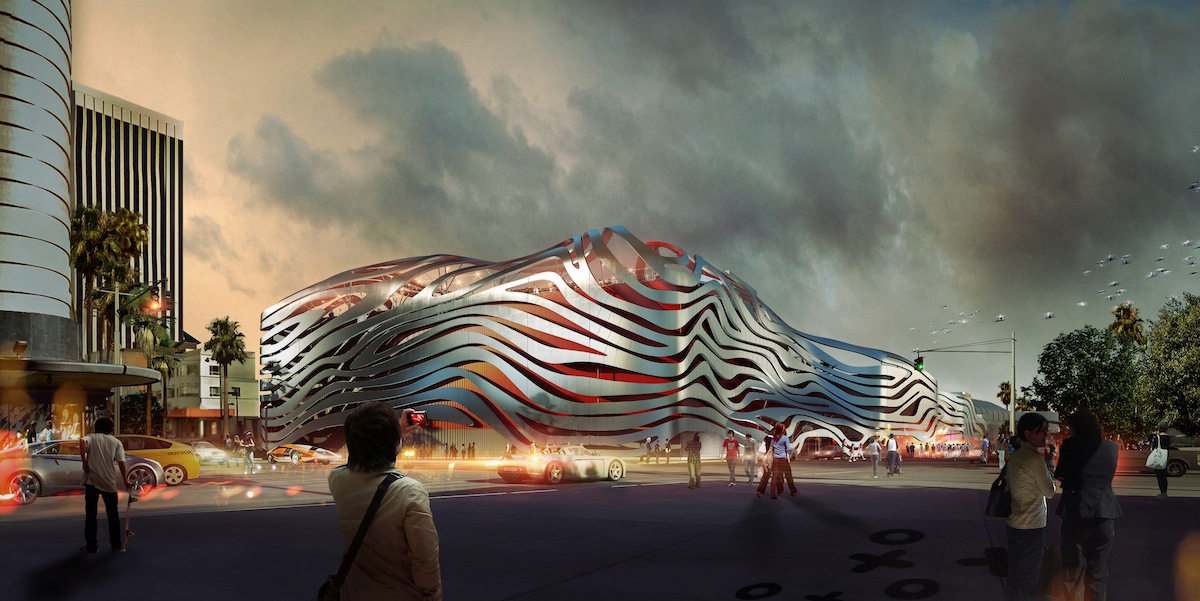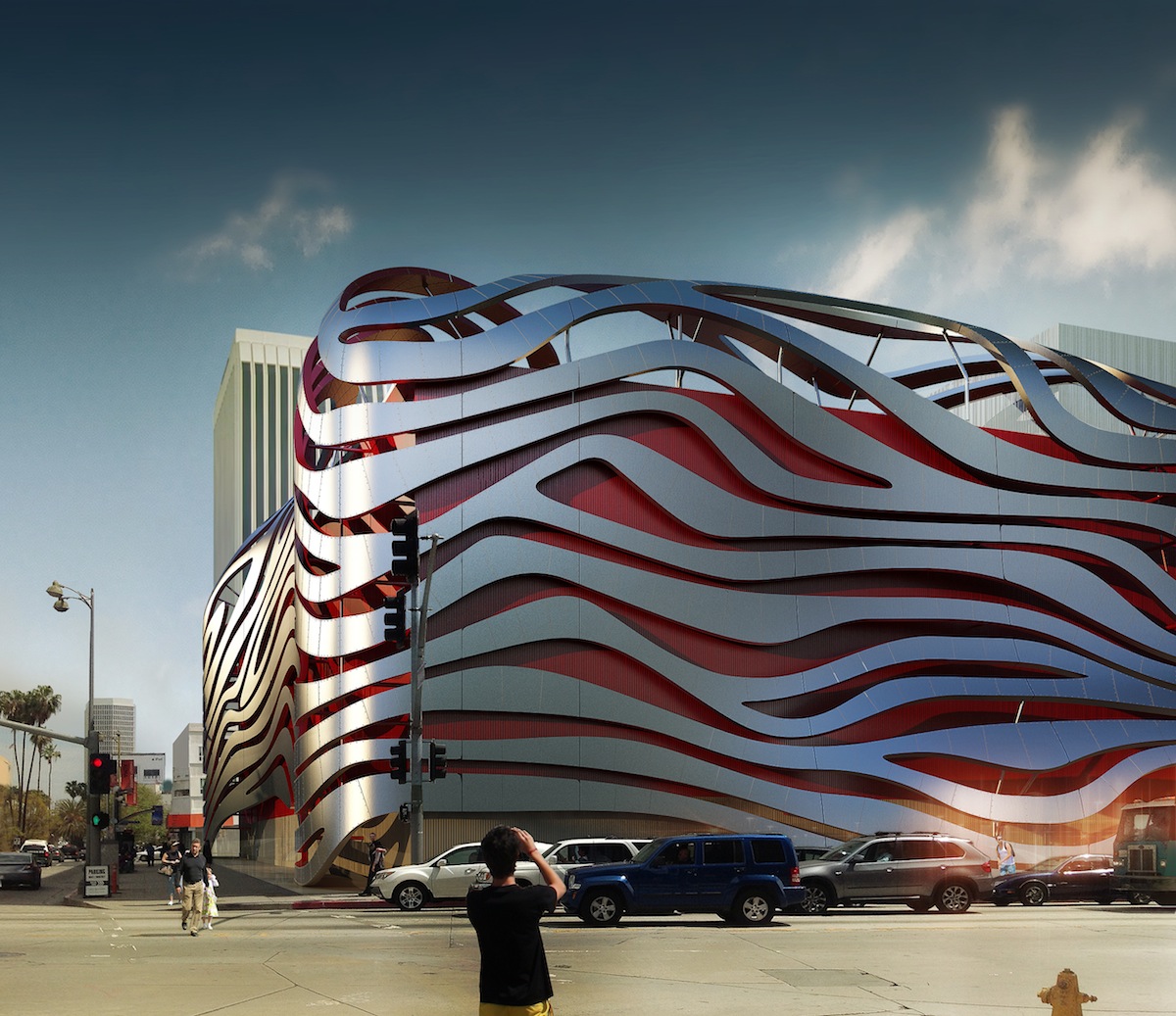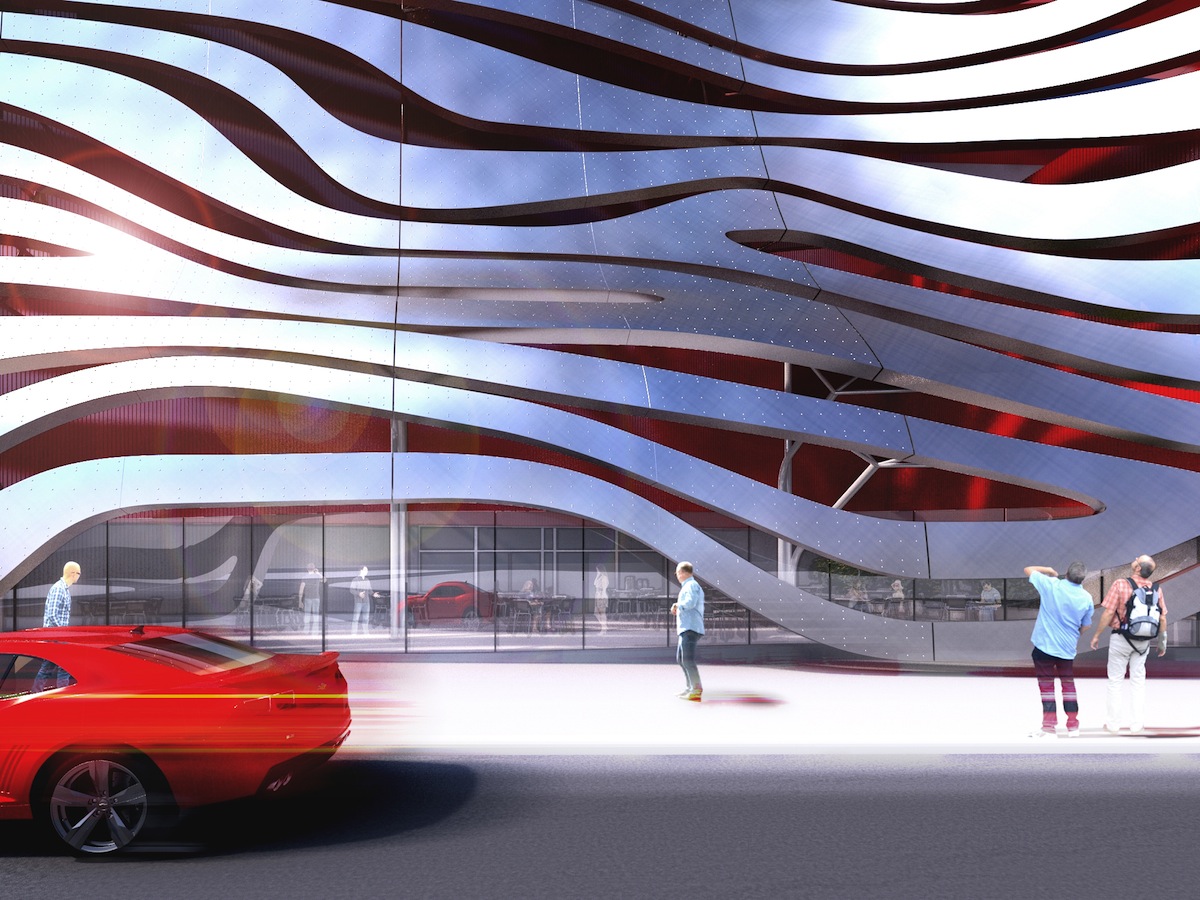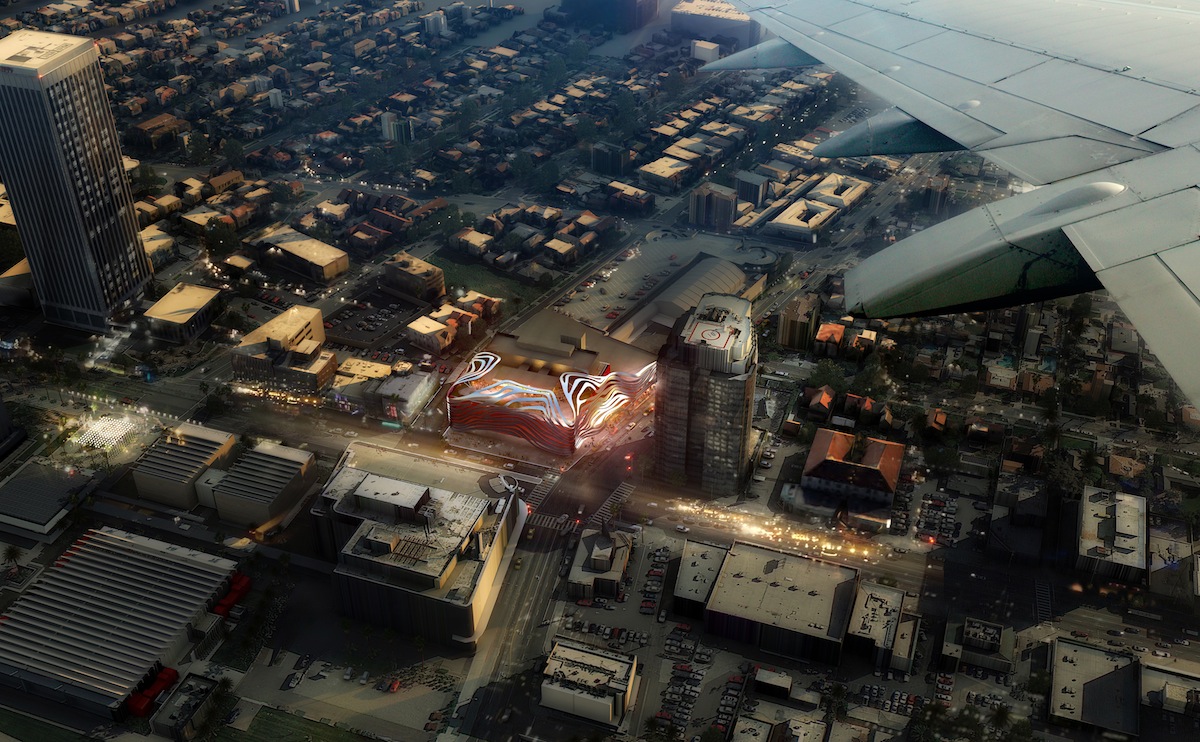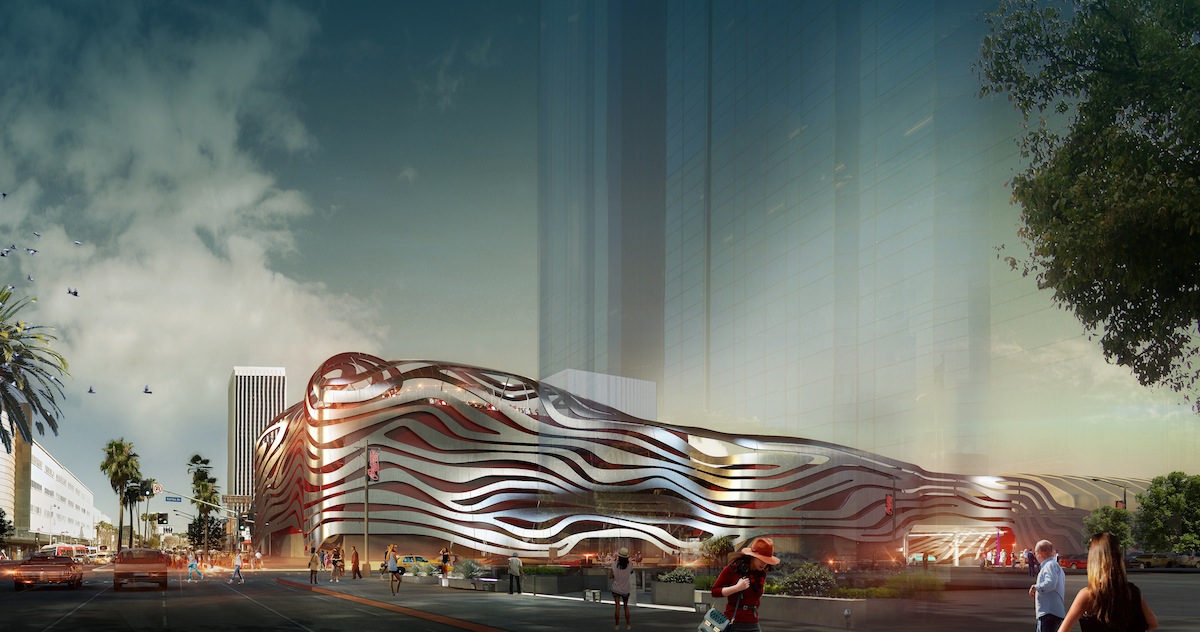The Petersen Automotive Museum will mark its 20th anniversary in 2014 by commencing a complete exterior transformation and a dynamic redesign of the interior, resulting in a world class museum that will showcase the art, experience, culture and heritage of the automobile. Displays will feature the prominence of the automobile in Southern California, as well as cars, trucks and motorcycles from around the world.
In addition to the facility upgrade, the new Petersen will feature a refined and upgraded permanent collection and an expansion of rotating displays, galleries, technology and story-telling, providing visitors with fresh, new experiences throughout the year.
The exterior design by Kohn Pedersen Fox Associates will transform the Petersen building into one of the most significant and unforgettable structures in Los Angeles. Long ribbons of stainless steel will wrap around three sides and over the top of the deep red building, making a visceral statement that evokes the imagery of speed and the organic curves of a coach-built automobile. At night, the color and forms will be lit from within to accentuate the steel sculpture and act as a beacon in the neighborhood known as The Miracle Mile.
"As we approach the Petersen Automotive Museum's 20th anniversary, our goal is to design and build an exterior as stunning as the vehicles and displays housed inside," said Peter Mullin, the Petersen's Chairman of the Board. "For two decades this museum has charmed visitors with its fantastic collection and its focus on education and entertainment. Our plan is to work with the best and brightest minds in architecture, automotive history and interactive design to give the people of Los Angeles and the world a place where they can be immersed in the culture, sights and sounds of the greatest vehicles ever built."
BEFORE (CURRENT EXTERIOR)
AFTER
The transformation will extend to the museum's interior as well, with a proposed additional 15,000 square feet of display space. Redesigned galleries will feature state-of-the-art lighting, digital displays and immersive learning stations that will tell the stories of the people and machines that changed the world over the past century.
Education programs will showcase a restored and upgraded permanent collection that includes historically significant American and European classics, hot rods, groundbreaking race cars, the latest in alternative fuel technology, cars with Hollywood heritage and even vehicles designed and built in Los Angeles itself.
The Petersen will continue the mission set forth by its founder, Robert E. Petersen, to showcase the automobile's role in art and culture, both locally and globally, while celebrating Southern California's place as the epicenter of the automotive landscape.
The museum will immediately begin a capital campaign to raise funds needed for the exterior renovations. For more information on the new Petersen, visit http://www.petersen.org/.
Related Stories
| Aug 11, 2010
World's tallest all-wood residential structure opens in London
At nine stories, the Stadthaus apartment complex in East London is the world’s tallest residential structure constructed entirely in timber and one of the tallest all-wood buildings on the planet. The tower’s structural system consists of cross-laminated timber (CLT) panels pieced together to form load-bearing walls and floors. Even the elevator and stair shafts are constructed of prefabricated CLT.
| Aug 11, 2010
Platinum Award: The Handmade Building
When Milwaukee's City Hall was completed in 1896, it was, at 394 feet in height, the third-tallest structure in the United States. Designed by Henry C. Koch, it was a statement of civic pride and a monument to Milwaukee's German heritage. It was placed on the National Register of Historic Places in 1973 and designated a National Historic Landmark in 2005.
| Aug 11, 2010
Special Recognition: Kingswood School Bloomfield Hills, Mich.
Kingswood School is perhaps the best example of Eliel Saarinen's work in North America. Designed in 1930 by the Finnish-born architect, the building was inspired by Frank Lloyd Wright's Prairie Style, with wide overhanging hipped roofs, long horizontal bands of windows, decorative leaded glass doors, and asymmetrical massing of elements.


